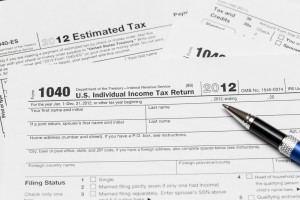 There are so many advantages to being your own boss. From the ability to set your own hours to the chance to work in your jammies, working as a freelancer has never been more popular than it is today. Transitioning into a freelance career or becoming your own entrepreneur also gives you a way to live free and clear of depending on an employer for a job and your income. But no amount of raw talent or client demand can help you if you don’t take care of some business basics such as bookkeeping, accounting and tax filing. Here are some tax basics that can make or break your business.
There are so many advantages to being your own boss. From the ability to set your own hours to the chance to work in your jammies, working as a freelancer has never been more popular than it is today. Transitioning into a freelance career or becoming your own entrepreneur also gives you a way to live free and clear of depending on an employer for a job and your income. But no amount of raw talent or client demand can help you if you don’t take care of some business basics such as bookkeeping, accounting and tax filing. Here are some tax basics that can make or break your business.
Understanding the Freelancer
As a freelancer, you have the ability to pick and choose the projects you want to accept. You can define your skillset and business focus as broadly or narrowly as you choose. If you want to work 30 hours per week or 80 hours per week, you can choose to do so. You can do all of the work yourself or outsource some of it to contractors you hire to help you. With all this freedom and flexibility, however, you may find yourself with some complicated questions to answer come tax time. Even if you have earned your online mba one year degree, you may still want to hire a bookkeeper or accountant to help you with your taxes. To help you decide, here are the basics you need to know.
- 1099s.
- How to file quarterly SE (self-employment) income taxes.
- IRS (Internal Revenue Service) Schedule C and how to fill it out correctly.
1099s 101
The first tax basic to understand is the 1099. Basically, you need to know what it is, how it works and what to do if you need to send or receive it. The 1099 is a tax form that is used to record income paid to freelancers or independent contractors; it is an earnings statement for people who don’t have taxes regularly deducted from each paycheck. It is similar to the W-2 forms that employees receive at year-end. As a freelancer, you will receive a 1099 at the end of each year from each client you worked for. If you do not receive a 1099 from a client, you can either contact them to get one sent to you or you can record the income you earned from them in a separate column on your IRS form 1040 at tax time. You may also need to send 1099s if you hire independent contractors or freelancers to help you fulfill some of your work overflow. If you need to send a 1099 you must send it by a certain date at the beginning of each year (the deadline date varies so check the IRS website).
Quarterly Self-Employment Taxes
The next tax basic that all freelancers must understand is how to calculate and file quarterly self-employment taxes. Once the IRS recognizes you as self-employed, you should automatically receive a packet each year with four envelopes and the SE worksheet with instructions and date deadlines. For the first year you will want to download this information from the IRS website. You can use the worksheet to calculate your estimated quarterly tax payments and either pay online or send in a check with a payment voucher. It is important to pay at least as much tax as you paid the previous year to avoid getting penalized.
IRS Schedule C
Finally, as a self-employed person you can take tax deductions for eligible business expenses. You will use IRS Schedule C to calculate how much you spent on business expenses during the prior calendar year and then add this information back into your IRS 1040 to calculate your total taxes. The Schedule C form also comes with a worksheet to help you identify which expenses are eligible and what percentage (if not 100 percent) can be deducted.
By understanding these “big three” tax basics you can start your career as a freelancer on the right foot and avoid challenges like IRS audits, paying back taxes or penalties and having to file tax extensions. You may also decide to hire a bookkeeper or an accountant to help you at tax time, which is often wise for the first year at least.
Marla Chance is a solopreneur who recently graduated with her MBA degree. She has her own business as an accounting consultant for small to mid-sized companies. She also teaches a community college course on freelancing basics.
Image Credit: Shutterstock.com



